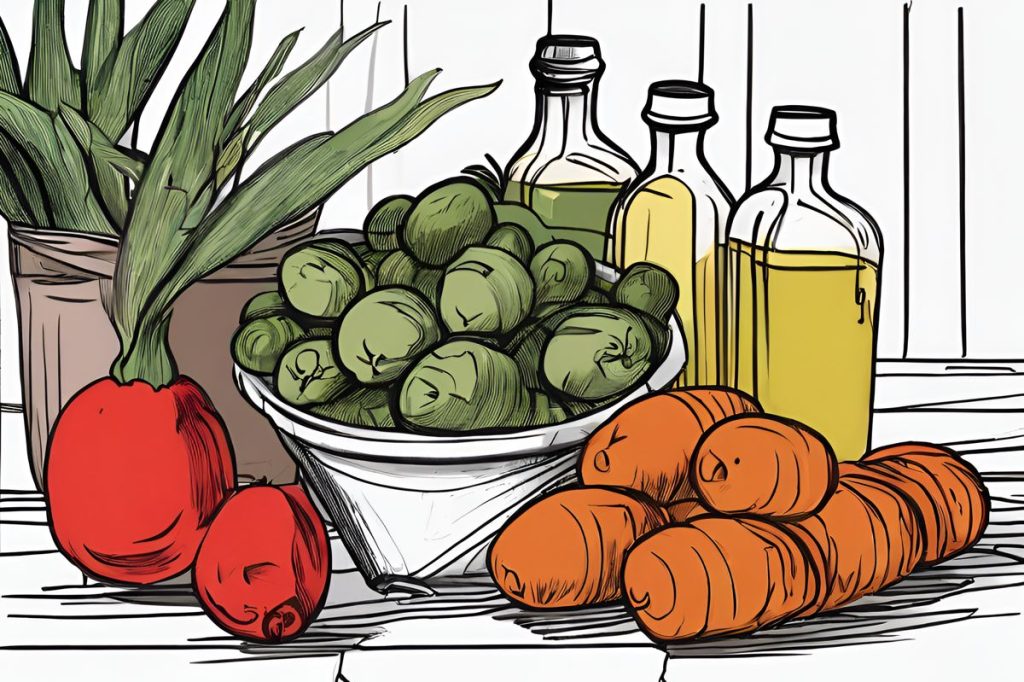In August 2024, Cyprus faced a dramatic rise in consumer prices, with olive oil skyrocketing by 62% and potatoes increasing by 29%, according to the Cyprus Consumer Association. Contributing factors like seasonal changes and supply chain disruptions continue to shape the landscape of rising food and transportation costs across the island.
What are the causes of rising food and transportation costs in Cyprus?
- Cyprus saw a significant hike in consumer prices during August 2024, with olive oil prices soaring by 62% and potato costs by 29%.
- The Cyprus Consumer Association noted a broader inflationary pattern, with transportation and fresh vegetables also showing price increases.
- Factors such as seasonal changes, supply chain disruptions, and economic policies contribute to price volatility.
Surging Prices in August: The New Normal?
Cyprus experienced a significant hike in consumer prices during August 2024. Amongst the most affected goods were olive oil and potatoes, two staples in Cypriot cuisine. Astonishingly, olive oil prices leaped by a staggering 62%, a rate that hadn’t been observed since the previous year. Similarly, the humble potato didn’t escape the upward trend, with its cost rising by 29% compared to August 2023.
The Consumer Price Index (CPI), a measure that examines the weighted average of prices of a basket of consumer goods and services, such as transportation, food, and medical care, reflected these changes. The data, carefully analyzed by the Cyprus Consumer Association, revealed a broader inflationary pattern affecting several essential sectors.
Transportation and Vegetable Costs: An Upward Trend
Not only did the food industry feel the impact, but transportation services also faced a price swell. Tickets for passenger buses and coaches saw a 26% jump, potentially affecting daily commuters and the overall cost of living. Fresh vegetables also weren’t spared, with a significant 19% rise in costs. Such increases might influence consumer choices, pushing them towards alternative options or prompting them to cut down on some essentials.
However, there was some relief for consumers as sugar prices bucked the trend, experiencing a drop of 27.6%. International flight costs also saw a downward movement, decreasing by 13%. These reductions, albeit in different sectors, provided some balance to the overall picture of rising expenses, offering a slight reprieve amidst a landscape of inflation.
Month-to-Month Variations: A Closer Look
The comparison between July and August 2024 brought fresh insights. Fresh vegetables not only became more expensive year-on-year but also saw the most significant month-on-month increase, spiking by 25%. The vegetable category, in general, faced an 18% climb, and potatoes weren’t far behind, with prices going up by 16%. These statistics could potentially impact local dietary habits, as well as the restaurant industry.
On a brighter note, fruit prices fell by 6%, and frozen seafood prices dipped by 4%, within the same period. Such fluctuations suggest a dynamic market, where certain foods become more accessible while others turn into luxury items.
Insights from Consumer Experts
Consumer experts often attribute such price volatility to various factors, including seasonal changes, supply chain disruptions, and economic policies. For instance, olive oil prices can be sensitive to poor harvests or international demand, while transportation costs might be influenced by fuel prices or regulatory changes.
Understanding the reasons behind these price movements is crucial for consumers and businesses alike. It helps in budgeting and in making informed decisions. Moreover, it sheds light on the economic health of a country, which is an essential barometer for both domestic and foreign investors.
In summary, Cyprus’s August 2024 inflation figures demonstrate the dynamic nature of the economy, with notable shifts in the cost of living. While some prices rise, others fall, painting a complex picture for consumers and policymakers. As the island navigates through these economic waters, the long-term effects of these changes remain to be seen.
“`markdown
What caused the dramatic rise in food prices in Cyprus in August 2024?
In August 2024, Cyprus experienced significant price increases in consumer goods, particularly food items. Olive oil prices surged by 62%, while potatoes saw a 29% increase compared to the same period in 2023. Contributing factors include seasonal changes, supply chain disruptions, and broader economic policies that have led to inflationary pressures across various sectors, including transportation and fresh vegetables.
How have transportation costs been affected by the recent price hikes?
Transportation services in Cyprus have also seen notable increases. Ticket prices for passenger buses and coaches rose by 26% in August 2024, affecting daily commuters and overall living expenses. This surge in transportation costs, alongside rising food prices, has been a major concern for residents, potentially influencing their daily choices and commuting habits.
Are there any food items that have seen price reductions during this period?
Yes, not all food prices have followed the upward trend. In contrast to the overall inflation, sugar prices decreased by 27.6%, and international flight costs fell by 13%. Additionally, during the same period, fruit prices dropped by 6%, and frozen seafood prices declined by 4%. These reductions may offer some relief to consumers amidst an otherwise challenging economic environment.
How can consumers navigate through these rising costs in Cyprus?
Consumers can navigate the rising costs by staying informed about price trends and considering alternatives. For example, with certain staple prices increasing, individuals might explore local markets for seasonal produce or adjust their dietary choices. Understanding the reasons behind price fluctuations can also help in budgeting and making informed purchasing decisions. It’s essential for consumers to adapt to these changes, as they reflect a dynamic market influenced by various factors, including economic health and supply chain conditions.
“`

